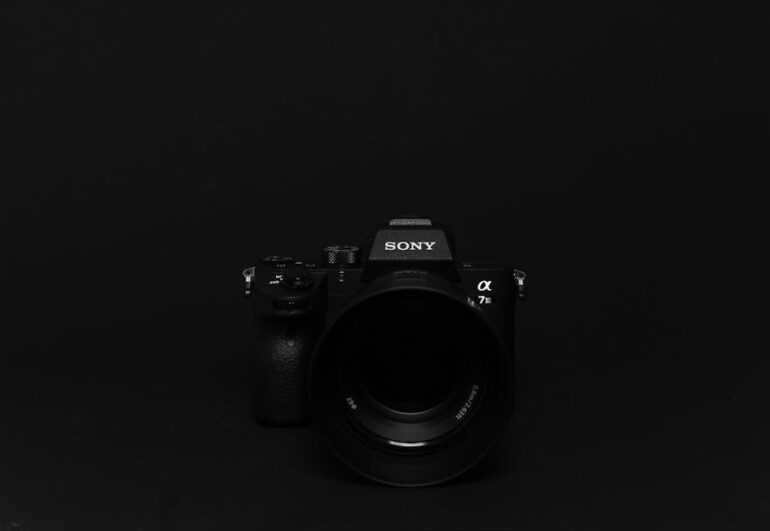Table of Contents
Did you know that businesses typically make an average of $2 in revenue for every $1 they spend on Google Ads? That’s a powerful statistic, and it highlights the potential of pay-per-click (PPC) advertising. But what exactly isPPC, and how does it work? If you’re feeling a bit lost in the world of online advertising, don’t worry! This guide will break down PPC in a way that’s easy to understand, giving you the knowledge you need to succeed in 2025.
PPC is a method of online advertising where you pay a fee each time someone clicks on your ad. Instead of trying to earn those clicks organically, you’re essentially buying visits to your website. Think of it like renting prime real estate on the internet.
Understanding the PPC Basics
So, how does PPC actually work? The process usually involves these key steps:
1. Keyword Research: This is where you identify the words and phrases people use when searching for products or services like yours. Tools like Google Keyword Planner can help you find relevant keywords.
2. Ad Creation: You craft compelling ads that include your keywords and a clear call to action. The better your ad, the more likely people are to click on it.
3. Bidding: You bid on the keywords you want your ads to appear for. The higher your bid, the better your chances of your ad showing up in a prominent position.
4. Ad Auction: When someone searches for a keyword you’re bidding on, an auction takes place. Google (or another search engine) determines which ads to show based on factors like your bid, the quality of your ad, and the relevance of your landing page.
5. Payment: You only pay when someone clicks on your ad. This allows you to control your budget and track your return on investment (ROI).
Key PPC Strategies for Success
While the basic concept of PPC is simple, success requires a well-thought-out strategy. Here are some key strategies to keep in mind:
Target the Right Keywords: Don’t just guess what people are searching for. Use keyword research tools to find high-volume, relevant keywords with lower competition. Consider using long-tail keywords (longer, more specific phrases) to target a more niche audience.
Create Compelling Ad Copy: Your ad copy should be clear, concise, and persuasive. Highlight the benefits of your product or service and include a strong call to action. A/B test different ad variations to see what performs best.
Optimize Your Landing Pages: Your landing page is where people go after they click on your ad. Make sure it’s relevant to your ad copy, easy to navigate, and encourages conversions. A slow-loading landing page can kill your PPC campaign.
Use Ad Extensions: Ad extensions provide additional information about your business, such as your phone number, location, or special offers. They can make your ads more visible and increase click-through rates (CTR).
Track Your Results: Monitor your PPC campaign performance closely. Track metrics like impressions, clicks, CTR, conversion rate, and cost per conversion. Use this data to optimize your campaign and improve your ROI.
Common PPC Mistakes to Avoid
Even experienced marketers make mistakes with PPC. Here are some common pitfalls to avoid:
Ignoring Negative Keywords: Negative keywords prevent your ads from showing up for irrelevant searches. For example, if you sell running shoes, you might want to add “walking shoes” as a negative keyword.
Poor Ad Group Structure: Organize your keywords into tight, тематично ad groups. This will allow you to create more relevant ad copy and improve your Quality Score.
Not Tracking Conversions: If you’re not tracking conversions, you won’t know if your PPC campaign is actually generating sales or leads.
Setting and Forgetting:PPC is not a set-and-forget strategy. You need to constantly monitor and optimize your campaign to achieve the best results.
Bidding on Broad Keywords Only: While broad keywords can generate a lot of traffic, they often have a lower conversion rate. Focus on targeting more specific keywords that are relevant to your target audience.
Useful PPC Tools
Several tools can help you manage and optimize your PPC campaigns. Here are a few popular options:
Google Ads: The most widely used PPC platform, offering a wide range of features and targeting options.
Google Keyword Planner: Helps you research keywords, estimate traffic, and analyze competition.
SEMrush: A comprehensive SEO and PPC tool that provides insights into keyword research, competitor analysis, and ad campaign optimization.
SpyFu: A competitor analysis tool that allows you to see what keywords your competitors are bidding on and what their ad copy looks like.
Optmyzr: A PPC management platform that automates many of the tasks involved in managing PPC campaigns.
Expert Insights on PPC
“PPC is about more than just bidding on keywords,” says Neil Patel, a well-known digital marketing expert. “It’s about understanding your audience, creating compelling ads, and optimizing your landing pages for conversions.”
Another expert, Larry Kim, founder of WordStream, emphasizes the importance of Quality Score. “Your Quality Score is a measure of the relevance and quality of your ads and landing pages. A higher Quality Score can lead to lower costs and better ad positions.”
Key Takeaways
PPC is a powerful way to drive targeted traffic to your website.
Keyword research is essential for a successful PPC campaign.
Compelling ad copy and optimized landing pages are crucial for conversions.
Tracking your results and making data-driven decisions is key to improving your ROI.
Avoiding common PPC mistakes can save you time and money.
PPC: A Table Comparison
| Feature | SEO (Organic Search) | PPC (Pay-Per-Click) | |
|---|---|---|---|
| —————– | ——————————————- | —————————————————- | |
| Speed | Takes time to rank high | Immediate visibility | |
| Cost | Primarily time and resource investment | Cost per click | |
| Control | Limited control over search engine results | Full control over ad copy and targeting | |
| Traffic Quality | Can attract a broad audience | Highly targeted audience | |
| Result Durability | Long-term results, but subject to algorithm changes | Results stop when you stop paying |
Frequently Asked Questions About PPC
What is pay per click (PPC)?Pay per click (PPC) is an online advertising model where advertisers pay a fee each time one of their ads is clicked. It’s a way to buy visits to your website, rather than earning those visits organically.
How does pay per click (PPC) work?
The PPC process involves keyword research, ad creation, bidding, ad auctions, and payment. You bid on keywords related to your business, and your ads appear when someone searches for those keywords. You only pay when someone clicks on your ad.
What are the benefits of PPC?PPC offers several benefits, including targeted traffic, immediate visibility, measurable results, and control over your budget.
What are some common PPC platforms?
The most common PPC platforms are Google Ads, Microsoft Advertising (formerly Bing Ads), and social media advertising platforms like Facebook Ads and LinkedIn Ads.
How do I choose the right keywords for my PPC campaign?
Use keyword research tools to identify relevant keywords with high search volume and lower competition. Consider using long-tail keywords to target a more niche audience.
Now that you have a solid understanding of PPC, it’s time to put your knowledge into action. Don’t be afraid to experiment with different strategies and tools to find what works best for your business. If you’re feeling overwhelmed, consider working with a PPC expert who can help you navigate the complexities of online advertising. A great next step would be learning more about building a business online using search engine optimization (SEO). Also, understanding how digital advertising works in general will help make better PPC decisions.
Check out this article on Search Engine Land that discusses the latest strategies for effective PPC management for further reading.
Also, this article from Forbes talks about ways to improve your Google Ads campaign.
Start optimizing your PPC campaigns today and see the results for yourself!

















